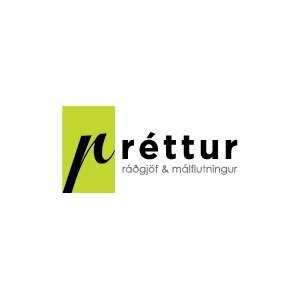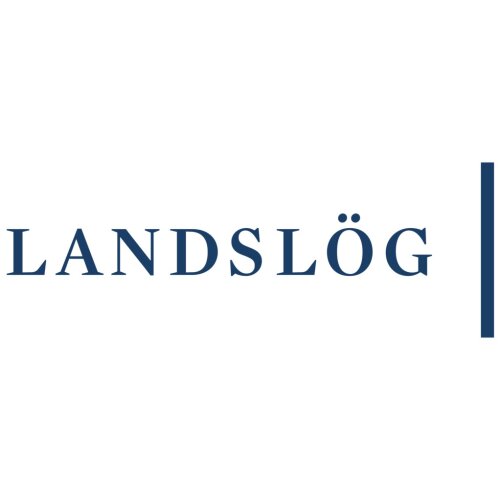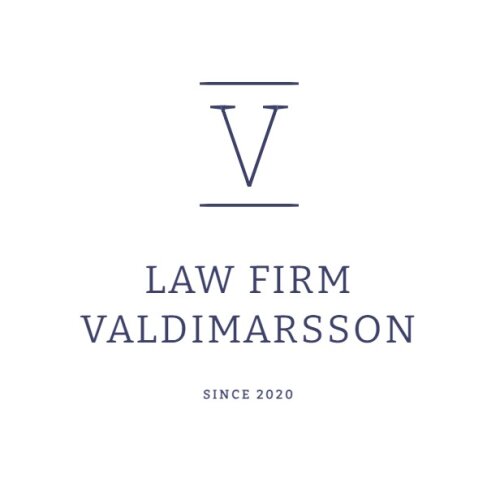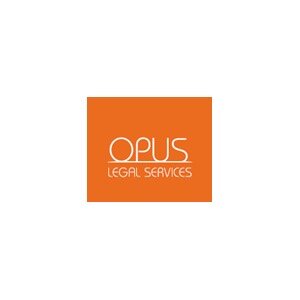Best Sustainable Finance Lawyers in Iceland
Share your needs with us, get contacted by law firms.
Free. Takes 2 min.
Or refine your search by selecting a city:
List of the best lawyers in Iceland
About Sustainable Finance Law in Iceland
Sustainable finance in Iceland is an evolving legal and regulatory field. It is aimed at fostering investment strategies and financial products that support environmental, social, and governance (ESG) objectives. The purpose is to ensure that financial markets contribute to sustainable development, including combating climate change and promoting responsible corporate practices. This involves integrating sustainability considerations into investment decisions, lending, and reporting. Iceland's commitment to sustainability is reflected in its rapid transition to renewable energy, dedication to the Paris Agreement, and alignment with the European Union's sustainability frameworks through its membership in the European Economic Area (EEA).
Why You May Need a Lawyer
There are several situations where you may require legal help regarding sustainable finance in Iceland. These include navigating new regulatory requirements for ESG disclosures, structuring green bonds or sustainability-linked loans, ensuring compliance with the EU and EEA directives, or resolving disputes related to sustainable investment practices. Organizations planning sustainable projects often need guidance on obtaining permits, meeting environmental standards, and understanding tax incentives. Investors may also need legal advice to ensure their investments align with sustainability criteria and local regulations.
Local Laws Overview
Sustainable finance in Iceland is primarily shaped by its legal obligations as an EEA member, which means adopting significant parts of the EU’s sustainable finance regulations. Key legal frameworks include:
- Regulation on Disclosure of Sustainability-Related Information: Financial institutions and market participants must disclose how sustainability risks are integrated into their processes and products.
- EU Taxonomy Regulation (as implemented in Iceland): Establishes criteria for determining whether an economic activity qualifies as environmentally sustainable.
- Non-Financial Reporting Requirements: Large companies are required to report non-financial and diversity information, particularly relating to sustainability risks and impact.
- Green Bonds Guidelines and Renewable Energy Incentive Laws: Provide frameworks for issuing green or sustainable bonds and managing renewable energy projects.
- Local Environmental and Climate Policies: National targets for carbon neutrality and environmental protection have direct implications for sustainable investment and project finance.
Compliance with these laws is crucial for both Icelandic and international companies operating in Iceland. Failure to meet regulatory standards can result in penalties and reputational risks.
Frequently Asked Questions
What is sustainable finance?
Sustainable finance refers to financial activities that take environmental, social, and governance (ESG) factors into account to promote sustainable economic growth and manage risks related to sustainability.
Is sustainable finance mandatory in Iceland?
While traditional finance is not restricted, many aspects of sustainable finance, such as ESG disclosures, are required for certain companies and financial institutions due to EEA-wide regulations.
What types of financial products are considered sustainable?
Examples include green bonds, sustainability-linked loans, and investment funds specifically targeting sustainable projects or companies with strong ESG performance.
How can I ensure my investment is sustainable and compliant?
Consult with a legal expert or compliance advisor to assess if your investment strategy and disclosures meet the latest Icelandic and EEA regulations on sustainability.
Are there tax benefits for sustainable investments in Iceland?
Certain sustainable projects, especially in renewable energy and green technology, may qualify for tax incentives or grants. Legal advice is recommended to explore available schemes.
Who oversees sustainable finance regulations in Iceland?
The Icelandic Financial Supervisory Authority (FME) monitors compliance, alongside ministries related to the environment, finance, and industry.
What is the EU Taxonomy and does it apply in Iceland?
The EU Taxonomy is a classification system for environmentally sustainable activities. As an EEA member, Iceland is implementing this regulation into its national legal system.
Do I need to report on non-financial or sustainability information?
Large companies, banks, and financial market participants in Iceland are required to publicly report sustainability information and non-financial risks in their annual reports.
What risks do companies face for non-compliance?
Non-compliance can result in administrative penalties, public sanctions, damage to reputation, restrictions on accessing finance, and potential legal disputes.
How do I get started with sustainable finance in Iceland?
Begin with a legal review of your current or intended projects or investments, ensure alignment with regulations, and seek professional guidance to integrate sustainability criteria into your financial activities.
Additional Resources
Individuals and companies can access a number of organizations and resources for guidance on sustainable finance in Iceland, including:
- Icelandic Financial Supervisory Authority (FME) - Regulates and oversees financial markets and compliance.
- Ministry for the Environment, Energy and Climate - Provides information on environmental policies and laws.
- Central Bank of Iceland - Offers policy statements and research on sustainable economic and financial matters.
- Chamber of Commerce in Iceland - Shares updates and best practices on responsible business conduct.
- Local law firms specializing in finance and environmental law - Can provide tailored legal assistance.
Next Steps
If you require legal assistance with sustainable finance in Iceland, consider the following actions:
- Define your objectives or the challenges you face regarding sustainable finance.
- Compile relevant documents, such as funding proposals, project plans, or existing compliance policies.
- Reach out to a qualified lawyer with experience in sustainable finance, financial law, or ESG regulations in Iceland.
- Schedule a consultation to discuss your needs, timelines, and the applicable legal framework.
- Implement legal advice and establish compliance processes to support ongoing sustainable finance activities.
Starting early and seeking professional guidance can help you navigate Iceland’s complex legal landscape and achieve your sustainability goals confidently.
Lawzana helps you find the best lawyers and law firms in Iceland through a curated and pre-screened list of qualified legal professionals. Our platform offers rankings and detailed profiles of attorneys and law firms, allowing you to compare based on practice areas, including Sustainable Finance, experience, and client feedback.
Each profile includes a description of the firm's areas of practice, client reviews, team members and partners, year of establishment, spoken languages, office locations, contact information, social media presence, and any published articles or resources. Most firms on our platform speak English and are experienced in both local and international legal matters.
Get a quote from top-rated law firms in Iceland — quickly, securely, and without unnecessary hassle.
Disclaimer:
The information provided on this page is for general informational purposes only and does not constitute legal advice. While we strive to ensure the accuracy and relevance of the content, legal information may change over time, and interpretations of the law can vary. You should always consult with a qualified legal professional for advice specific to your situation.
We disclaim all liability for actions taken or not taken based on the content of this page. If you believe any information is incorrect or outdated, please contact us, and we will review and update it where appropriate.
Browse sustainable finance law firms by city in Iceland
Refine your search by selecting a city.

















